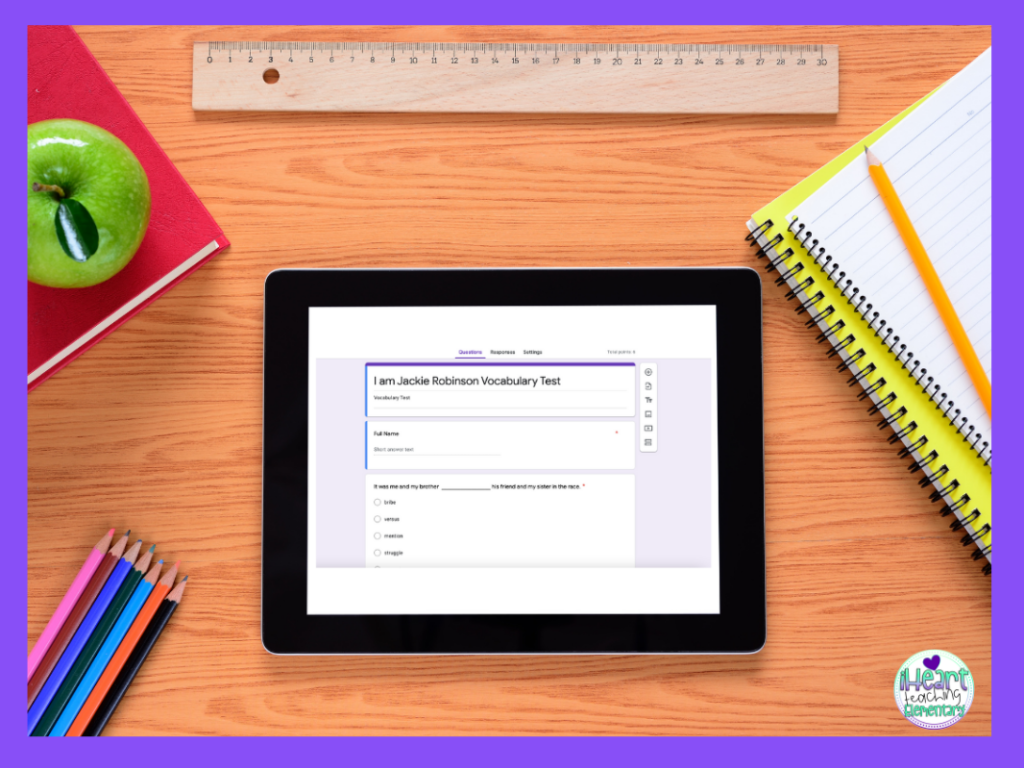Don’t grade everything.
It’s ok to give kids things to work on that we don’t grade.
The point of grading is to assess how kids are doing.
Although that could also be argued because sometimes the grade a student receives is not a reflection of well they know the information they’re being assessed on.
Before you assess them they need to practice. Why grade something that is assigned for the purpose of practice?

It’s ok to look at assignments and send them home without any marks. If you really want to send it home with something, write a checkmark and call it a day!
You might be thinking, “Well how about the parents that expect to see a grade on everything?”.
Good news! You’re the professional and get to determine what gets graded and what doesn’t. Have clear and open communication about your grading system and most parents will be understanding.
Grades are not the only measure of student progress and it’s important to communicate that to parents.

Only grade assessments.
Kids are assigned grades for the purpose of analyzing what they have learned.
And that’s what assessments are. They are used to measure a student’s knowledge of a subject. So it’s ok to grade tests only.
This goes with my first point of not grading everything. Allow kids to practice without the penalty of a grade. Sometimes kids need to know that what they are completing is for practice only.
This is especially true for kids that get testing anxiety.

Assign fewer tests.
How often do you assess? Do you have the freedom to assign tests on your own or is it determined by your administration?
The answers to those questions will determine if you can assign more tests.
If you have the freedom to choose, assign fewer tests.
There’s no reason to assign a ton of tests to determine if a student knows a certain skill. You can find that out from one or two tests.
If you taught elapsed time all week and you notice your students are not understanding it, wait to assess them. Don’t assign a test just because it’s “test” day.

Don’t grade homework. In fact don’t assign homework.
I cringe when I hear teachers say they grade homework. Grading something a child has done at home is not a true representation of how well they know a skill.
Does the child get help at home? Or does the child have little support at home?
There are so many factors that play into whether or not a child will be successful at completing their homework. So there’s no reason to grade it.

As students complete an assignment roam the room and check in on their work.
If you want to evaluate whether or not a student is grasping a concept, roam the room after giving practice assignments.
You’ll gain a lot of knowledge doing that and can offer one-on-one support that will help that child improve.
As you walk around, make note of who might need a small group session to practice that skill. This will allow you to help the child even more which increases the likelihood that they do well on the assessment.

Assign shorter assessments.
There’s no reason to assign a test that has 50 problems if you can find out if a child knows a skill with 10 problems.
When you assign shorter tests you also have less to grade.
This also allows for more instructional time because you’re not waiting for kids to finish a long assessment.
I know this doesn’t apply to state test practice. But for the sole purpose of grading, you can have shorter assessments.

If you have devices, create google forms assessments that are scored automatically for you.
Assigning a Google Form assessment is a great way to get things graded quickly.
This is really easy for math because you can usually just plug math problems into a Google Form quiz.
But this can also be done for things like reading.
If it’s a passage with questions, give students a hard copy of the passage and questions. Then have them input their answers into a Google Forms quiz that gets graded automatically.
Not only is it easier to grade but you get immediate feedback on student progress.
Your time is so valuable. Don’t spend it grading all the time. Do you have any grading tips to save time? Let me know in the comments!




